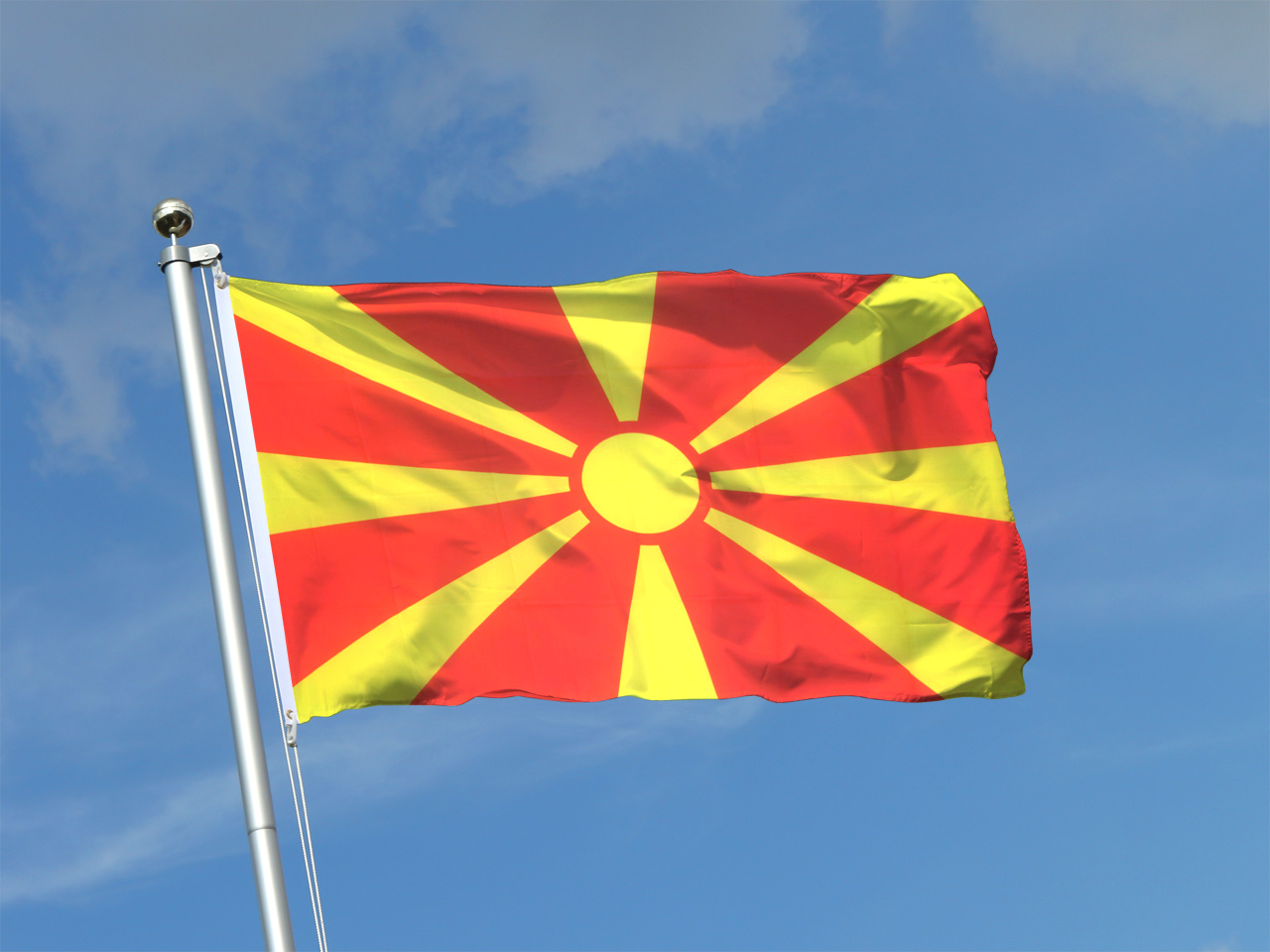The Macedonian Rift
June 14, 2018 | Expert Insights

Macedonia’s President Gjorge Ivanov said he will not endorse changing the official name of the Former Yugoslav Republic of Macedonia to ‘The Republic of Northern Macedonia’ on 13th June.
Greece and Macedonia have been engaged in a 27-year long dispute regarding the official name of Macedonia.
Background
The areas which constitute modern day Republic of Macedonia are landlocked with Greece to the South and Albania to the West. Historically, it has been the cradle of Alexander the Great’s empire before being incorporated into the Roman empire. During Europe’s Medieval period, repeated barbaric invasions from the Balkans and Slavic conquests, alongside widespread influx of the Hellenic-Roman influence, resulted in the language and culture of the indigenous Thraco-Illyrian people being lost to antiquity. South Slavic tribes settled in the territory of the present-day Republic of Macedonia in the 6th century; Byzantine Greek historians referred to these settlements as “Sklavines.”
Following Ottoman rule, there was a period of “Serbianisation” during the interwar years where Bulgarian, Greek and Romanian schools were closed, the Bulgarian priests and all non-Serbian teachers were expelled.
When Italy-ruled Albania occupied the region, many locals joined the resistance movement led by Josip ‘Broz’ Tito. "People's Republic of Macedonia" was incorporated as an autonomous republic within the new Socialist Federal Republic of Yugoslavia. The dissolution of the Soviet Union led to the creation of six independent states from the larger Yugoslavia by 1991. From the time of independence, Greece has vehemently opposed the use of the Hellenic name and symbols. Although FYR Macedonia made changes to their flag and constitution, Greece has continued to object to the “appropriation” of Greek culture by a state with primarily slavic-origin inhabitants. Moreover, Greece’s northern region is formally known as Macedonia.
In 1993, following a recommendation from the Security Council, the Former Yugoslav Republic of Macedonia was accepted, by decision of the General Assembly, into the United Nations under this provisional name, until an agreed solution to the name is reached. Greece has since vetoed FYR Macedonia’s bid to join NATO and the European Union.
An accord was finalized during a phone call between Greek Prime Minister Alexis Tsipras and his Macedonian counterpart Zoran Zaev on 12th June, and in return for the name change to “Republic of Northern Macedonia”, Greece would lift its vetoes on the country joining the EU and NATO.
Analysis
The historical claim held by the Greeks to Macedonia is widely debated amongst academia as they maintain that the ancient Macedonians were neighbours to the Greek having their own distinct identity. The 1913 division of the Balkan state by Greece and her allies has been viewed by Macedonians as an “illegal partition of the whole and occupation of a part of Macedonia.”
The accord has not been received positively by citizens of both countries. The Parliaments of Greece and Macedonia have to ratify the deal, and Macedonia is expected to hold a referendum.
“This achieves a clear distinction between Greek Macedonia and our northern neighbours and puts an end to the irredentism which their current constitutional name implies,” Greek PM Alexis Tsipras said, in a televised address.
However, the left leaning Independent Greeks (ANEL) political party, forming the coalition, has reiterated that they will not back any change containing the name “Macedonia.” Addressing a press conference in Athens on Tuesday, Panos Kammenos, who is also defense minister, said that while ANEL will not back a composite name with “Macedonia,” he and Prime Minister Alexis Tsipras are maintaining “close cooperation on the issue.” The nationalist leader went on to threaten any lawmaker who backs the change with removal from the party.
The main opposition party in Macedonia, the conservative VMRO-DPMNE, accused PM Zoran Zaev of “capitulating” to Greece. Macedonian President Gjorge Ivanov has said that he will not sign the deal because it affords too many concessions to Greece.
Macedonia as a sign of goodwill changed the name of their airport in Skopje from ‘Skopje Alexander the Great Airport’ to ‘Skopje International Airport.’ Nevertheless, Greeks are still reeling from the 2011 enhancement of downtown Skopje which included a “warrior on a horse” closely resembling Alexander the Great.
Greece has been a close trading partner of Macedonia, and an alliance of the two countries will provide for greater security and stability in Southern Europe.
In a joint statement, EU foreign affairs chief Federica Mogherini and EU enlargement commissioner Johannes Hahn said, “We wholeheartedly congratulate Prime Ministers Alexis Tsipras and Zoran Zaev for their determination and leadership in reaching this historic agreement between their countries, which contributes to the transformation of the entire region of south-east Europe.”
The EU is expected to meet in late June while the NATO Summit has been scheduled for July. Both organizations were welcoming of the change on 12th June.
NATO said the agreement will "set Skopje on its path to NATO membership" and praised the two leaders for their willingness to "solve a dispute which has affected the region for too long.”
Assessment
Our assessment is that the referendum results in FYR Macedonia will be close call, but in favour of the new name. However, nationalist sentiments in both countries might derail negotiations regarding Macedonia’s entry to the EU and NATO ahead of the respective summits. It is to the advantage of the Balkans, and Europe as a whole, to accept the change as the positives will assist economies of both Greece and Macedonia.
Read more: Crisis in Macedonia








Comments